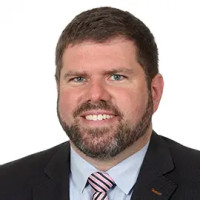
Our next guest of speaker series of Institute for Political Science is Philip Habel (Professor and Department Chair, University of South Alabama; U.S. Fulbright Distinguished Scholar and University Professor, Maria Curie-Skłodowska University, 2023-24) with the presentation entitled:
Conspiracy Beliefs, Old and New. Media, Old and New
Scholars and the public alike have expressed concerns about the pervasiveness of conspiracy beliefs among the citizenry, and accordingly, considerable scholarship in recent years has investigated the drivers of conspiracy thinking, including the role of mass media. Scholars have pointed to the importance of traditional, legacy media in mitigating conspiracy beliefs, while at the same time expressing concern over the role of social media and certain forms of advocacy media as a source for promotion of misinformation that can further conspiratorial thinking. Utilizing a unique survey that both asks respondents their beliefs on a range of conspiratorial items and assesses their news media habits across a variety of media types including legacy, advocacy, entertainment, and social media---as well as including items capturing political and psychological constructs that have been shown to be important---this paper offers new insight on the relationship between news media and conspiracy beliefs. Our central findings are threefold: first, we see consistent evidence that citizens’ regular consumption of national newspapers suppresses conspiracy beliefs; second, consumption of advocacy media has a positive relationship for certain conspiracy beliefs; and finally, social media news consumption is likewise positively related to adoption of particular conspiracy beliefs. Taken together, our findings provide additional support for the importance of legacy media, particularly recognized national newspapers, in impeding conspiratorial thinking, while at the same time raising new cautions about the relationship of advocacy and social media to conspiracy beliefs.


